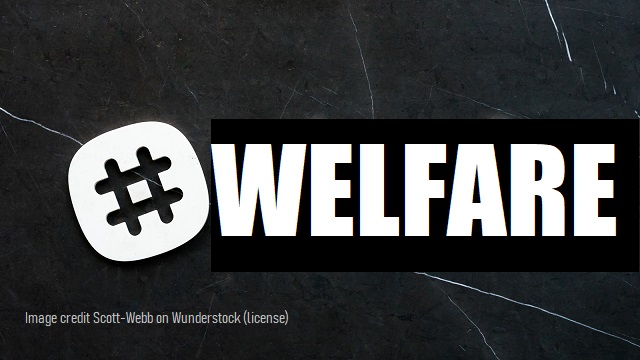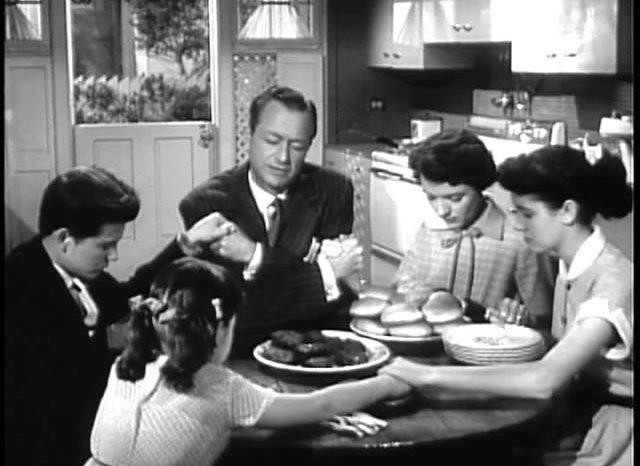As we approach the 2014 General Election, with president Barack Obama set to occupy the White House for two more years, the stakes are higher than ever. As usual, Democrats across the country focus on phony issues, such as a Republican “War on Women,” the widening income gap between the rich and the non-rich, and bogus claims of being champions of the middle class.
In terms of domestic policy, they express support for the “middle class,” while doing everything in their power to turn America into a two-class society: the very rich… whose wealth they only wish to plunder… and the very poor, who, in return for an endless array of government handouts, will be expected to do nothing more than to pull the Democrat lever on Election Day.
In foreign affairs, they express outrage over the gruesome crimes of radical Islam… such as the recent beheading of an Oklahoma City woman by a radical Muslim co-worker… yet they oppose any and all effort at what they see as “racial profiling.” They find moral equivalency between the anti-Christian genocide of radical Islam throughout the Middle East, and the bombing of a Birmingham, Alabama abortion clinic in years past.
They express support for high quality public education, but the teachers unions… who own a controlling interest in the Democrat Party… dictate that Democrats oppose any and all voucher proposals, causing the greatest damage to the hopes of minority parents who want to see their children receive a quality education. They ignore the fact that throwing more money at public schools does nothing to increase the quality of a public school education. Instead, at the behest of the teachers unions, they demand that class sizes be reduced, that new school buildings be constructed, and that teacher salaries be increased… all the while regaling their low-information voter base with the cynical lie that Republicans want to “cut benefits to kids.”
They express a desire for the budget discipline of the 1990s… a direct result of Ronald Reagan’s “trickle down” economic policies and the election of a Republican Congress… and they support the notion of cutting the deficit in half, while supporting every new spending scheme hatched by liberal social planners. (In their 2000 platform, they announced that Democrats would entirely eliminate the public debt by the year 2012. Clearly, they had not heard of Barack Obama.)
While expressing a desire to curb the influence of lobbyists, they attempt to convince low-information voters that Republican administrations are dominated by lobbyists for business interests. Yet, no previous administration has been as heavily staffed and influenced by special interests as is the Obama administration. And while they express strong support for an electoral system that is “accessible, auditable, and accurate,” they insist that every attempt to curb vote fraud is nothing more than a Republican scheme to oppress the black vote.
On the healthcare front, they express a desire to provide healthcare insurance for 30-40 million uninsured, to improve the access to and quality of healthcare for all Americans, to substantially reduce the cost of healthcare for everyone, and to do it all without increasing the number of doctors, nurses, and hospitals. Like president Barack Obama, they see no contradictions in any of this. These are obviously people who would promise, with a straight face, that they could stuff 10 lb. of (excrement) into a 5 lb. Bag. All we need to do to make these magical things happen is to elect more Democrats to public office.
Democrats want to use the tax code to discourage the outflow of jobs overseas. Yet they have no problem with the fact that the United States has the highest corporate tax rate of any developed nation. They express a desire to cut taxes for every working family, including those who pay no federal or state income tax, but they exclude tax relief for the “millionaires” who are expected to provide good-paying jobs for the poor and the middle class.
And finally, while fast food workers go on strike demanding a $15.00 per hour minimum wage, a 107 percent increase, Democrats prescribe a poison pill for the U.S. economy with a proposed increase in the federal minimum wage standard from $7.25 cents per hour to $10.10 per hour a 39.3 percent increase. In doing so, they scoff at studies which show that, for each 10 percent increase in the minimum wage, 1-2 percent of jobs in the nation simply go away. For unskilled entry-lever workers, each 10 percent increase in the minimum wage results in a decrease of 4-5 percent in the number of entry-level jobs available… the jobs most often held by teens, the poor, and the unskilled.
According to a recent report by the Bureau of Labor Statistics, a majority of those who worked at minimum wage jobs in 2013 were 24 years old, or younger, while only 0.8 percent, less than one in a hundred, of those 24 years old, or older, work for a minimum wage.
Minimum wage increases are major job-killers. According to a 2014 report by the non-partisan Congressional Budget Office, an increase in the minimum wage from the current $7.25 per hour to $10.10 per hour would reduce the total number of jobs available by approximately 500,000. For the most part, these are the jobs currently held by all those fast food workers who fill the streets, demanding a $15 per hour minimum wage. And if those who clamor for a $15 per hour minimum wage are anxious to learn what happens to a job market with a minimum wage of that magnitude, they won’t have to wait long. In early June 2014, the Seattle city council voted to increase the minimum wage in that city to $15 per hour, the highest in the nation.
A report by the National Restaurant Association (NRA) tells us that, of every dollar of revenue coming into restaurant cash registers, approximately 33 percent goes to salaries and wages. The remainder of that dollar of revenue goes to cover the cost of food and beverages, other costs of doing business, and a small net profit for the owner. According to NRA statistics, the profit margin of restaurants varies, depending on the size of the average check per patron. Those with average checks under $15 per person… e.g., McDonalds, Burger King, Taco Bell, etc… produce average profit margins of 3 percent, while those with checks of $15 to $24.99… e.g., The Olive Garden, Red Lobster, The Cheesecake Factory, etc… produce profit margins of roughly 3.5 percent, the highest in the industry.
According to a recent report by Gingrich Productions, a good measure of the impact of minimum wage laws can be found in the European experience. Among those countries with no minimum wage… Austria, Germany, Sweden, and Switzerland… the median unemployment rate is just 5.2 percent, while the median jobless rate stands at 11.1 percent in countries with minimum wage laws… more than twice that of those without minimum wage laws.
But there is a much larger issue than the question of whether we should have a statutory minimum wage of $10.10 or $15 per hour… an issue that Barack Obama and congressional Democrats are not anxious to talk about. I refer to the question that more and more minimum wage workers are asking themselves, which is, “Why should I work 40 hours a week at $10.10 per hour, when I can earn more by staying at home and living off the public dole?”
A 2013 Cato Institute study tells us that, in 33 states and the District of Columbia, welfare benefits pay more than the current $7.25 per hour, while in 13 states, welfare benefits pay more than $15 per hour. In Hawaii, for example, the pre-tax “salary” of stay-at-home welfare recipients is $60,590 per year, or $29.13 per hour when compared to a 40-hour work week, while in Washington, DC, the hourly rate for just staying at home is $24.43 per hour. At the lower end of the spectrum among states where sloth is more lucrative than honest toil, the hourly rate for stay-at-home welfare recipients in South Carolina is $10.53 per hour… 43 cents more than the $10.10 minimum wage proposed by Democrtats.
So what do we do to fix the problem?
Instead of catering cynically to the poorest of the poor as a political constituency, as Democrats do, we should be asking exactly how an individual in this, the land of opportunity and economic freedom, can still be working at a minimum wage job when he/she is 24 years old, or older. That circumstance can only be explained by pointing out that a great many people simply make very bad choices in their lives.
But Democrats are clearly more interested in purchasing a “nanny state” constituency than they are in doing what is necessary to really help people lift themselves out of poverty. As one writer, Charles M. Blow, has said, “Much of what happens in Washington occurs at the intersection of political advantage and earnest intentions.”
What is clear is that we cannot perpetuate a system in which it is more lucrative to take a welfare check than it is to earn an honest living. In order to throw off the bonds of that insanity our options are only two. First, one might ask, why not raise the minimum wage to $25 or $30 per hour so that those who work can earn more than those who don’t, or won’t? The answer is, a $25 or $30 minimum wage would literally wreck whatever is left of our fragile economy and price us completely out of world markets.
The one remaining option is to do what we did in the mid-90s when a Republican-controlled Congress forced a Democrat president, Bill Clinton, to sign what was called “welfare-to-work” legislation, requiring those on public assistance to also find honest employment. The country experienced real economic growth, balanced budgets, and a pay-down in the national debt.
The choice is ours. What was done in the 1990s can be done again. But in order to do that we must first have a president who understands at least a “smidgen” about the intricacies of the U.S. economy. That means that our first priority must be to rid ourselves of Barack Obama, sending him back to his Kenyan roots where he can actually learn a thing or two about micro-economics.
RELATED ARTICLES:
Wages and the Free Market, Part 1 — Dispelling labor market myths with theory and data
Wages and the Free Market, Part 2 — Innovation Is the Lifeblood of a Healthy Economy
Raise the Minimum Wage? A Socratic Dialogue














